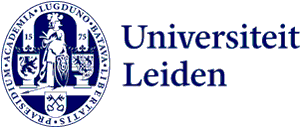NSE: The National Student Survey
All students in the Netherlands are invited to take part in the National Student Survey (NSE) once a year. Via the NSE you can give your opinion on the positive aspects of your study programme, as well as what you think could or should be improved.
NSE in one minute
Due to the selected cookie settings, we cannot show this video here.
Watch the video on the original website orTake the survey!
Are you happy with your study programme or do you think there is room for improvement? Give your opinion via the NSE 2024.
You will receive an invitation via uMail on 15 January. You can take part up to and including 10 March 2024.
Your opinion is important
The NSE is an important feedback mechanism for Leiden University. By taking the survey, you can help us to improve our education and facilities. For example, we would really like to hear what you think about the level of the courses within your study programme, whether you are being taught relevant skills and if you find your lecturers to be knowledgeable and inspiring.
The NSE is also important for future students who are currently choosing a study programme. The results of the NSE can be a valuable source of information when looking for the right study programme. By giving your opinion, you can help future students to make the right choice.
By taking the survey you could also win a great prize!
View the results
If your faculty or study programme provides additional information about the results, you can find this under your faculty or programme tab. You can also find the results of your study course on the NSE Dashboard (in Dutch).
The survey consists of an online questionnaire in which you will be asked to enter information about yourself, your study programme and a series of study-related topics. Most questions are relevant for all students in the Netherlands, however there are also questions about topics that we at Leiden University find particularly important - such as personal skills, equal treatment and student wellbeing. In addition to closed questions, the NSE also contains more open fields, in which you can explain your answers. It only takes 10 to 15 minutes to complete. You can take the survey on your computer, telephone or tablet, in English or Dutch.
You don’t need to worry about privacy when taking the NSE. Your data will be processed and analysed in a responsible manner. When reporting and distributing the findings of the NSE, both within universities and for national comparison purposes, responses will not be linked to individual students. Our university will receive the data anonymously. This means that your responses cannot be traced back to you. For example, a lecturer will never be able to see which comments are yours.
Please note: If you share personal details about yourself in the open fields for additional comments, there is a possibility that they could be traced back to you. We therefore kindly request that you only share personal information in your comments if you don't object to employees, teachers or members of your study programme committee seeing them. Alternatively, you can formulate your comments in general terms without giving any details about yourself.
The results of the NSE are used to improve education and provide information for future students. This happens in various ways and at different levels, i.e. nationally, at university level, within faculties and within individual study programmes.
Improving education
As soon as the results are available, we get to work. The results are analysed and discussed by university and faculty managers, education coordinators, quality assurance staff, and student/staff members of programme committees. We decide what improvements need to be made, then carry them out when possible. Sometimes the results are immediately visible. For example, more self-study areas were created in the Wijhaven building by using empty classrooms. Other improvements take longer. For example, a project to better prepare students for the labour market has been running for several years, as the result of NSE feedback that indicated that students thought there was room for improvement.
When identifying points for improvement, we don’t just rely on the results of the NSE. We also take other signals into account, for example any issues raised by students in course and programme evaluations and feedback from programme committees and faculty councils.
Information for prospective students
The results of the NSE are used as a study-choice aid for secondary school pupils, students, parents and study-choice advisers. Organisations such as Studiekeuze123, Keuzegids and Elsevier publish the results to enable prospective students to compare programmes and make the right choice.
Research and policy
Finally, organisations such as the Higher Education Inspectorate, the Ministry of Education, Culture and Science (OCW), the Expertise Centre Inclusive Education (ECIO) and the umbrella organisations for Dutch universities (UNL and VH) and researchers, use the results to monitor student satisfaction and to research higher education in the Netherlands and develop educational policy.
Landelijk Centrum Studiekeuze (previously Studiekeuze123) organises the NSE, on behalf of the Ministry of Education, Culture and Science (OCW), in collaboration with higher education institutions and national student unions. Leiden University provides student data to the LCSK to enable them to carry out the survey. Our students and staff also assist in promoting the NSE and encouraging student participation.
Take a look in the NSE frequently asked questions (in Dutch). If you can’t find the answer you are looking for, get in touch with us.
Questions about your study programme or faculty?
Contact your study programme’s ‘programme committee’ or your faculty assessor.
General questions?
Contact Eva Sweep via e.sweep@bb.leidenuniv.nl.

View the results
NSE 2024: Response per programme (%)


